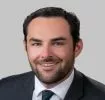The SECURE 2.0 Act of 2022 (SECURE 2.0) significantly changes the legal and administrative compliance landscape for U.S. retirement plans. Foley & Lardner LLP is authoring a series of articles that take a "deep dive" into key SECURE 2.0 provisions that will affect how employers structure and administer their 401(k) plans, pension plans, and other types of employer-sponsored retirement plans.
If you've been following our Diving Into SECURE 2.0 series of articles, you're well aware of the many ways SECURE 2.0 affects retirement plan administration and structure. For the most part, the SECURE 2.0 changes we've covered (including – but not limited to – RMD changes, student loan matching, and rules simplifying plan administration) apply to all defined contribution retirement plans.
This month, however, we are focusing on several SECURE 2.0 changes specific to Employee Stock Ownership Plans (ESOPs). SECURE 2.0 also included the Worker Ownership, Readiness, and Knowledge (WORK) Act, which directs the Department of Labor (DOL) to create an Employee Ownership Initiative. These ESOP-related provisions are discussed below along with the applicable effective date.
Tax Deferrals for S Corporation ESOP Sales (2028)
Currently, the shareholders of non-publicly traded C corporations may sell their shares to an ESOP and defer capital gains tax if certain requirements under Internal Revenue Code (Code) Section 1042 are met. In summary, Section 1042 allows for the transfer of the selling shareholder's basis in the stock sold to an ESOP (if the ESOP owns 30% or more of the company's stock after the sale) to other qualifying investments, known as "qualified replacement property" (QRP). QRP generally means stock or debt of any domestic operating company (other than securities of the company sold to the ESOP). Under current law, this Code Section 1042 rule allows the selling shareholders, if the applicable requirements are met, to defer capital gains taxes to a later date and possibly forever if QRP is held until death.
ESOPs are a tax-favored means for private company succession planning because of Section 1042. As an alternative to selling to a strategic buyer or private equity fund, founders often consider selling their company shares to their employees through an ESOP. Many founders prefer selling their shares to their employees, not only for the Section 1042 tax advantages, but also to reward employees and avoid fundamentally changing the culture of the company.
SECURE 2.0 expands Section 1042 treatment to S corporation shareholders who sell to an ESOP beginning in 2028. This will allow S corporation shareholders to use tax-favored succession planning strategies that are similar to C corporation shareholders. Notably, however, Congress placed a 10% limit on the amount of taxes an S corporation shareholder may defer. Congress may have limited the Section 1042 tax deferral benefits for S corporations because of the significant tax benefits currently afforded to S corporations owned by an ESOP, such as an ESOP's current exemption from federal taxes on its allocable share of S corporation income.
WORK Act Employee Ownership Initiative
The WORK Act directs the DOL to establish an Employee Ownership Initiative (Ownership Initiative) to promote employee ownership and employee participation in business decision-making. In fact, the DOL announced on July 10, 2023, that it launched the Ownership Initiative within its Employee Benefits Security Administration (EBSA). The WORK Act appropriates $50 million over five years to the Ownership Initiative, which also will support existing state employee ownership programs and, eventually, nonprofits. Funds will be used for:
- Providing education and outreach to inform employees and employers about the possibilities and benefits of employee ownership and business ownership succession planning;
- Providing technical assistance to employee efforts to become business owners, to enable employers and employees to explore and assess the feasibility of transferring full or partial ownership to employees, and to encourage employees and employers to start new employee-owned businesses;
- Training employees and employers with respect to methods of employee participation in open-book management, work teams, committees, and other approaches for seeking greater employee input; and
- Training other entities to apply for funding to establish new programs and to carry out program activities.
ESOP Appraisals
Currently, under Employee Retirement Income Security Act of 1974 (ERISA) Section 408(e), an ESOP does not engage in a non-exempt prohibited transaction if it purchases stock from the plan sponsor for no more than adequate consideration. The term "adequate consideration" under ERISA means fair market value as determined in good faith by the trustee or named fiduciary pursuant to the terms of the plan and in accordance with regulations promulgated by the DOL. The DOL has not finalized its previously-issued, adequate consideration regulations. After many years of waiting, the WORK Act requires the DOL to develop acceptable standards and procedures for a good faith fair market value determination. The ESOP community is anxiously awaiting the DOL's guidance given that ESOP valuations are a DOL enforcement priority and are the most litigated ESOP issue.
Change Regarding Definition of Publicly Traded Employer Securities (2028)
ESOPs that hold "publicly traded employer securities" and have a salary deferral or matching contribution feature are subject to special diversification requirements under Internal Revenue Code Section 401(a)(35). "Publicly traded employer securities" are defined as "employer securities that are readily tradable on an established securities market." Per Code Section 401(a)(35), these ESOPs must allow participants who have at least three years of service to diversify the shares of employer securities allocated to their ESOP and matching contribution accounts and allow for immediate diversification for ESOPs with salary deferral contributions, rollover contributions or after-tax contributions.
SECURE 2.0 expanded the definition of "publicly traded employer securities." Beginning in 2028, the definition will include certain non-exchange traded securities so long as the security is subject to priced quotations by at least four dealers on a Securities and Exchange Commission-regulated interdealer quotation system, is not a penny stock, is not issued by a shell company, and has a public float of at least ten percent of outstanding shares.
Other Secure 2.0 Act Provisions Generally Affecting ESOPs
SECURE 2.0 made several other changes that affect qualified retirement plans generally, including ESOPs. Notably, SECURE 2.0 changed certain rules relating to required minimum distributions (RMDs). SECURE 2.0 also made several changes aimed at easing the administrative burden on plan sponsors, such as eliminating plan notices to unenrolled participants under certain circumstances, as well as establishing a Retirement Savings Lost and Found Registrar and expanding retirement plan correction procedures under EPCRS.
The content of this article is intended to provide a general guide to the subject matter. Specialist advice should be sought about your specific circumstances.


